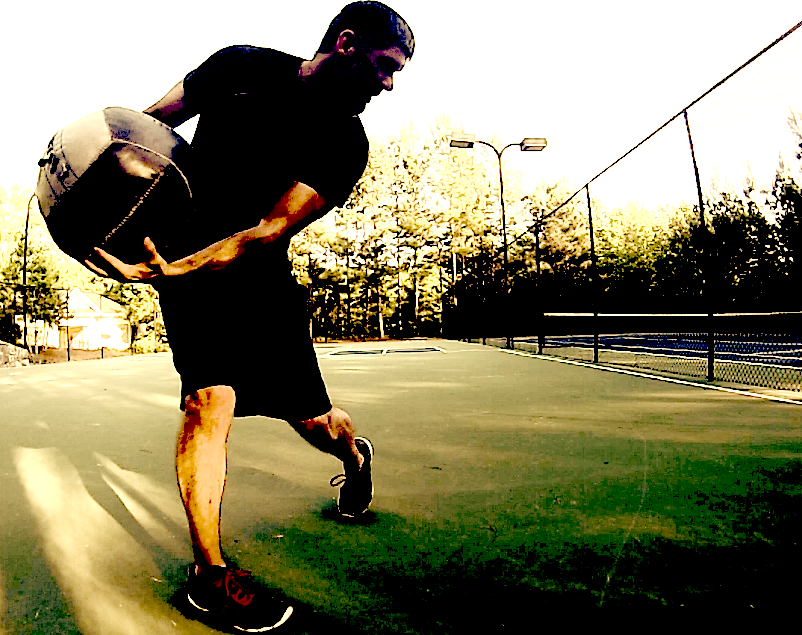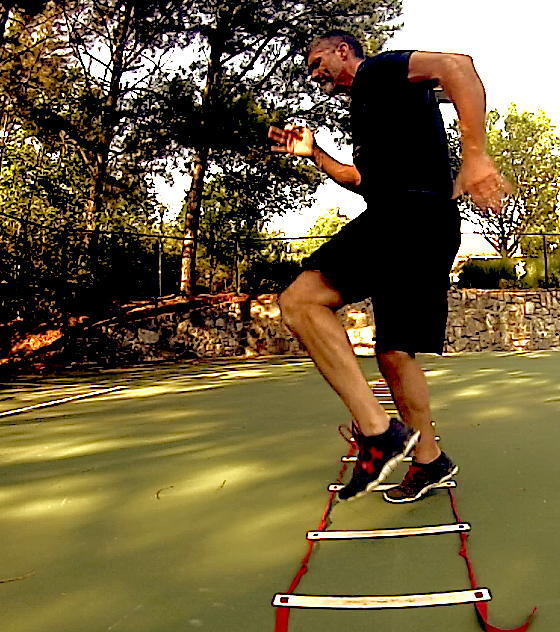
Tunnel Vision: The Potential Killer To Your Strength Training Success!

You know there are many different kinds of killers out there in the world. The truth is that killers can present themselves in different places,in different scenarios, and in very different ways. One type of very different killer is Dexter, which also happens to be the name of my favorite TV show; Dexter. No, I don’t mean the cartoon character either. The character I’m talking about is Dexter the crime scene blood splatter expert that also happens to be a serial killer.
It just so happens that he harnesses his skills as a crime scene investigator along with his dark desire to kill others to take out serial killers that slip through the cracks of justice. That’s Dexter pictured above. Now why am I telling you all of this? Well I’m telling you this because there is another very different type of killer lurking in the shadows that can possibly take out your strength program if you let it. Keep reading to find out what this could be!
Tunnel Vision And A Lack Of Logical Thought Towards Your Strength Program…
As a blogger and strength coach I’m always reading to catch up on innovative ways to further challenge and advance the cause of both my readers and my strength and conditioning students. Because of this I frequently peruse the internet and some social media platforms (like Facebook) to see what some of the other professionals and so-called professionals are saying in the field about certain strength training topics.

So far so good, right? Well the reason I’m getting into all of this is that I frequently see other trainers searching for some new argument to present on a particular subject (in the strength training world) about why something may or may not be good for one’s strength training program. Sometimes these guys and girls will dive into anatomy and physiology to try and sound good in an attempt to try and hold up their point of view. Sometimes they present a good case and they often even sound really really smart by doing it, but when it comes to making their point many have failed to do so all in the name, and in the attempt, to make themselves appear superior on a particular topic. The good news is that there are still those of us that actually exist in the real world and have a good understanding of what the hell is going on and can see through the bullsh*t when there is a need for bullsh*t to be seen through!
For example, a while back I saw a post on a certain trainer’s wall on Facebook regarding the use of stability balls (instability training) as a strength training implement. Essentially his take on the matter, along with one of his so-called very bright friends, was that stability balls were “completely useless” as a training tool. This really got my attention. You see his criticism was directed towards that of a fellow trainer that he had evidently witnessed using a bosu ball on an elderly person who already had a difficult time stabilizing himself on a stable surface.
Now I’m not saying his criticism of the trainer working with the elderly person is not valid in that particular scenario, however I am saying that to maintain a “tunnel vision” type of mindset towards the stability (or bosu) ball as a completely useless tool is really going a bit too far. Now don’t get me wrong I’m not shouting out to the top of my lungs that everyone should engage in unstable surface training and that it is the greatest thing since sliced bread, but I am saying that this particular implement does serve a purpose in training and the NSCA has the data to prove it. The key is being smart enough as a trainer or coach to recognize what specific populations and scenarios would benefit most from this particular training tactic.

Just in case you’re curious the only real drawback on unstable surface training is the diminished amount of force production for identical exercises that can be performed on a normal stable surface (squats, bench press, etc.). However the development of core stabilization is a proven characteristic when implemented effectively on unstable surfaces. Now I didn’t want to get into addressing unstable surface vs. stable surface training in today’s blogisode, but I am directing my frustration towards many trainers out there that tend to develop tunnel vision when it comes to learning and unlearning about effective ways of strength training.
So The Potential Killer Is Tunnel Vision…
Did I just say learning and unlearning in that last sentence? Yes, I did. So coach Brandon what do you mean by learning and unlearning and tunnel vision? Well when it comes to the internet and with many so-called “well known” strength coaches and trainers out there using their blogs as a platform to hammer home their point of view they sometimes miss the mark with some of their stances on what supposedly “works” and “doesn’t work” in terms of strength training principles.
Meanwhile it’s almost as if some readers unlearn (or forget) about basic principles and take that inaccurate piece of information and completely and dependently hang on every word of it. In the meantime they may be leaving something valuable out of their strength training program as a result of it. If we compare this to a crime scene investigation you could be letting the killer get away. Dexter doesn’t ignore principles and is open to the possibility of anything…even a sushi chef!
Could you be sitting there reading this thinking well coach you’re doing the same thing? I mean coach are you not presenting your perspective to me (the reader) in order to accomplish the same goal? The answer to that is YES, but the difference is that I’m always right! Of course I’m joking. The answer is YES, but at the same time that is why I’m saying to you to use your gift of deductive reasoning. In addition to this utilize your own experiences in strength training along with what you know about the science behind the argument to draw your own conclusions.
Don’t be afraid to be creative along with being sound in your strength training principles. If you happen to be a coach or a trainer don’t be afraid to express your point of view, but don’t restrict your point of view by having tunnel vision, especially if you have to justify your approach, a strength training tactic that you’re using, or a specific technique involved towards a client or student that may be misinterpreted by someone. It all boils down to being well studied and having an open mind to new tactics.
Don’t let tunnel vision be the killer to your strength training program. It’s great to dive deep into your craft, but not so much so that you allow the new findings to override basic principles. If you want to learn more about good basic strength training principles and how those principles can help to shape your strength training methods then you need to get your own copy of my Brandon Richey’s Better Than Steroids ebook:
If you happen to be a Kindle user you can also get your own copy right here off of Amazon as well! Remember that most anyone can train hard, but only the best train smart!






